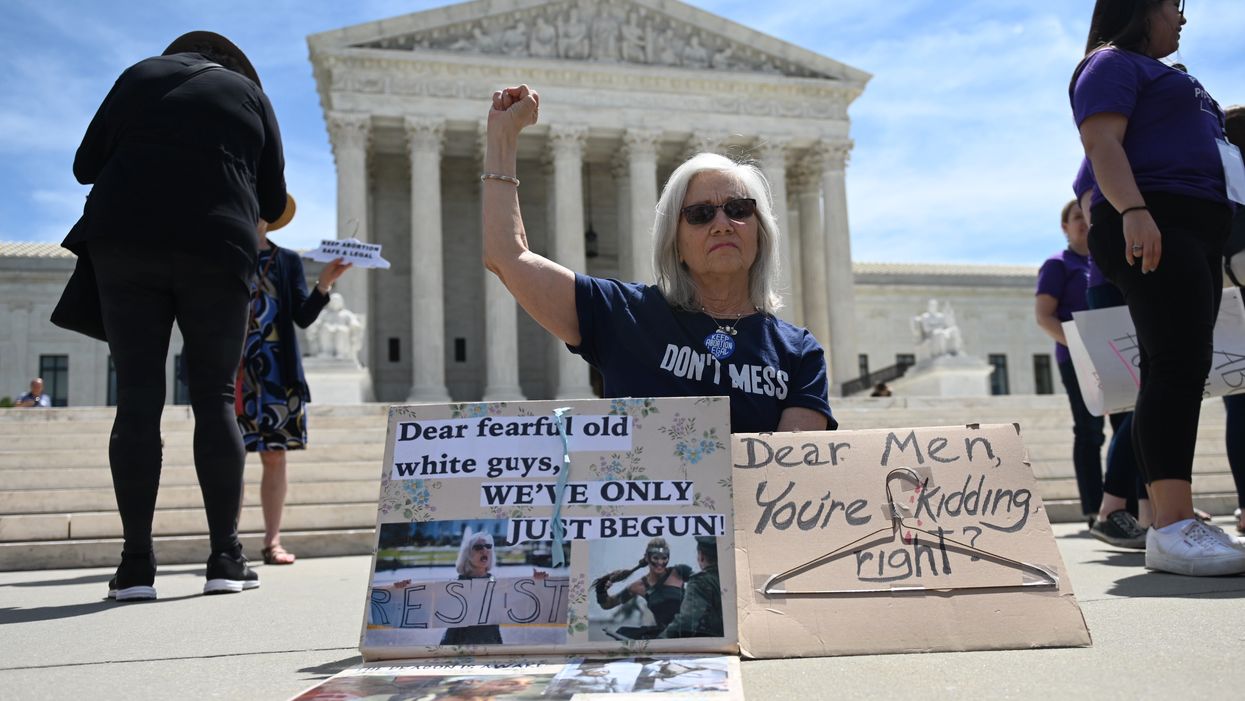
Andrew Caballero-Reynolds/AFP/Getty Images

Law prohibits abortion providers from treating aborted babies as 'infectious waste'
The U.S. Supreme Court upheld on Tuesday an Indiana law that requires abortion providers to bury or cremate fetal remains but it rejected an appeal to reinstate a law that would prohibit discriminatory abortions.
In 2016, then-Gov. Mike Pence signed into law a bill that prohibited abortion providers from treating aborted babies as "infectious and pathological waste," according to the law. The other part of the law banned abortions sought because of a baby's race, sex, or a disorder, such as Down syndrome.
State Attorney General Curtis Hill Jr. said the law was passed in response to an "alarming trend of disability-selective abortions." The law was intended to protect children "with Down syndrome and other disfavored characteristics from invidious discrimination," NBC News reported.
Both provisions were later blocked by the lower courts.
The 7th Circuit Court blocked the requirement for abortion providers to treat an aborted baby in the same way that any other deceased human would be treated in the state.
"We now reverse that determination," the Supreme Court wrote in their opinion. "This Court has already acknowledged that a State has a 'legitimate interest in proper disposal of fetal remains.'"
In a separate opinion, Justice Clarence Thomas expressed his support for the provision.
"Indiana law prohibits abortion providers from treating the bodies of aborted children as 'infectious waste' and incinerating them alongside used needles, laboratory animal carcasses, and surgical byproducts," Thomas wrote. "I would have thought it could go without saying that nothing in the Constitution or any decision of this court prevents a State from requiring abortion facilities to provide for the respectful treatment of human remains."
The lower court also blocked a provision that prevented a doctor from performing an abortion sought after the sex of the baby or a congenital defect or disorder is diagnosed.
The Supreme Court upheld that decision which means the law cannot take effect.
Thomas likened discriminatory abortions to Eugenics adding that the court would need to confront the Constitutionality of the law.
In her view, birth control had been "accepted by the most clear thinking and far seeing of the Eugenists themselves as the most constructive and necessary of the means to racial health. It is true that Sanger was not referring to abortion when she made these statements, at least not directly. She recognized a moral difference between "contraceptives"and other, more "extreme" ways for "women to limit their families," such as "the horrors of abortion and infanticide."
Whereas Sanger believed that birth control could prevent "unfit" people from reproducing, abortion can prevent them from being born in the first place. Many eugenicists therefore supported legalizing abortion, and abortion advocates — including future Planned Parenthood President Alan Guttmacher — endorsed the use of abortion for eugenic reasons. Technological advances have only heightened the eugenic potential for abortion, as abortion can now be used to eliminate children with unwanted characteristics, such as a particular sex or disability.
Given the potential for abortion to become a tool of eugenic manipulation, the Court will soon need to confront the constitutionality of laws like Indiana's. But because further percolation may assist our review of this issue of first impression, I join the Court in declining to take up the issue now.
Justice Ruth Bader Ginsburg said the court applied the wrong standard in upholding one provision of the law.
"The case implicates the right of a woman to have an abortion before viability and to obtain it without undue interference from the state," Ginsberg said.
She was the only justice to note a dissent.
Now Vice President Pence wrote on Twitter that he was proud of the law that he signed as governor of Indiana.
"As Governor of IN I was proud to sign a law that requires remains of aborted babies be treated w/dignity & respect and blocks groups like Planned Parenthood from the horrific practice of selling fetal tissue. Today's decision by the Supreme Court was a victory for life!" he tweeted.
In another tweet, Pence commended Thomas for his opinion.
"Today, Justice Thomas wrote: SCOTUS has been zealous in the past in barring discrimination based on sex, race, & disability. Hopeful someday soon SCOTUS will recognize the same protections for the unborn when they rule on future appeals of pro-life legislation."